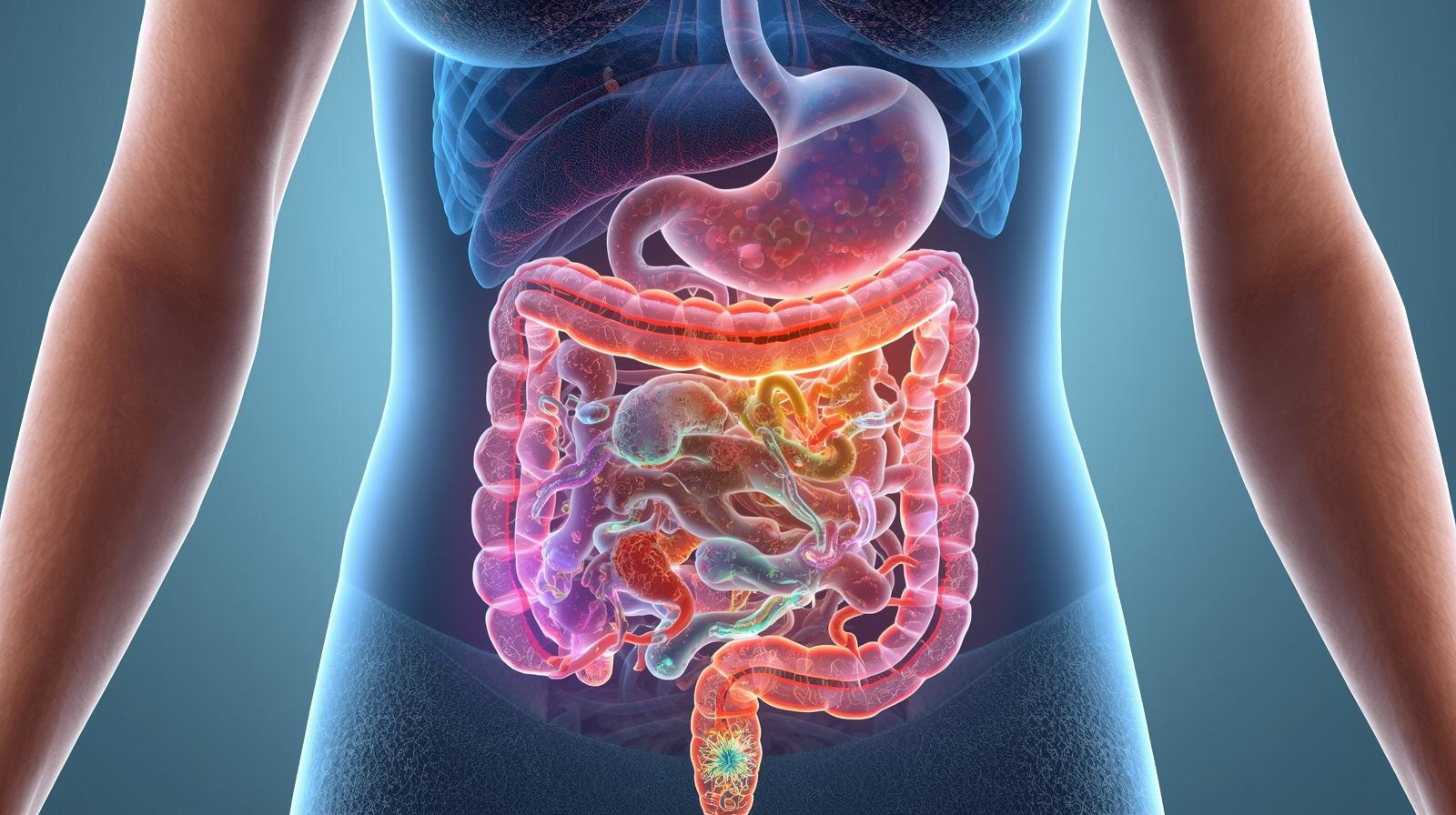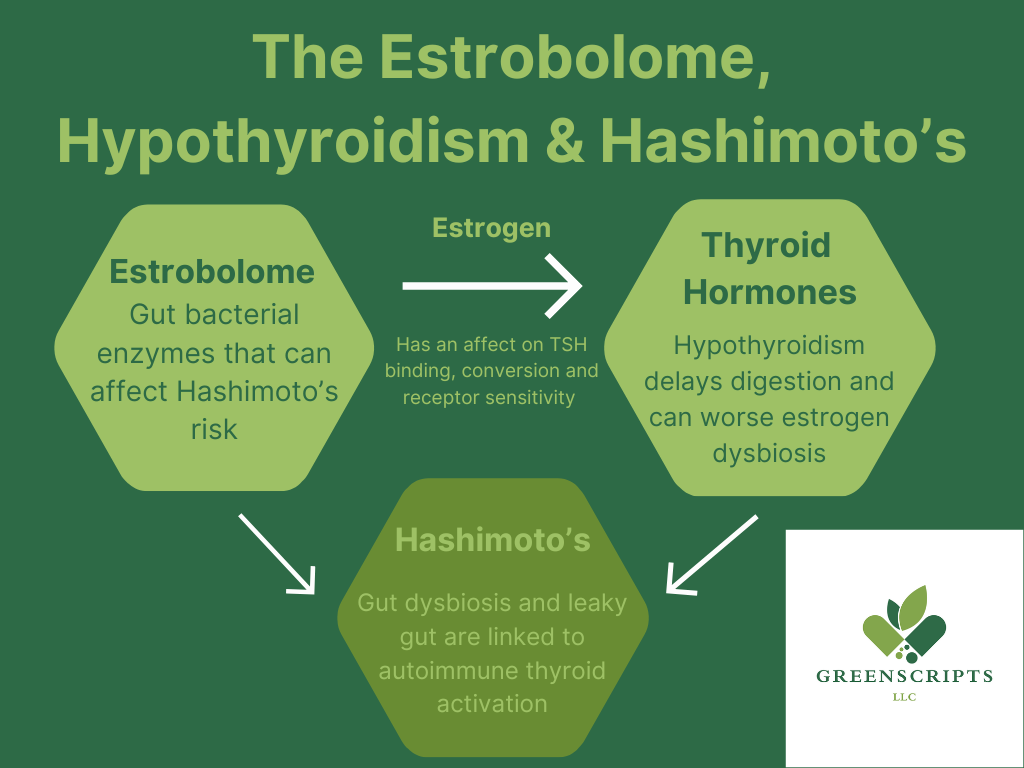The Hidden Link Between Gut Health and Hormones
Your gut plays a major role in estrogen clearance, thyroid function, cortisol regulation, and nutrient absorption. When it’s out of balance, your hormones feel it first. Learn what you can do today to start rebalancing both.
If you’ve been dealing with bloating, mood swings, fatigue, or stubborn weight changes, your gut might be the missing piece of the hormone puzzle.
Most people focus only on thyroid levels or reproductive hormones—but the truth is, your gut is constantly influencing how those hormones behave.
Your gut is more than a digestion center. It’s a communication hub. It talks to your thyroid, your ovaries, your adrenals, your brain, and even your metabolic pathways. When your gut is inflamed, sluggish, or imbalanced, your hormones can’t function the way they’re supposed to.
A deeper look inside: a healthy microbiome supports balanced hormones and whole-body wellness.
When your gut is thriving, hormone balance becomes dramatically easier. Let’s break down how the gut and hormones stay so deeply connected:
1. Estrogen Balance (The Gut–Estrogen Cycle)
There’s a group of gut bacteria—known as the estrogen-regulating microbiome or estrobolome—that helps process and recycle estrogen in the body. When this system is healthy, estrogen is used properly and then eliminated.
But when the gut microbiome is imbalanced, these bacteria can become overactive or underactive. The result?
Estrogen recirculates when it shouldn’t
Estrogen becomes difficult to clear
Levels start to build up
Your gut, estrogen levels, and thyroid health are deeply linked—here’s the cycle at a glance.
This can lead to:
PMS
Heavy or painful periods
Breast tenderness
Mood swings
Bloating
Perimenopause symptoms that feel worse than they should
Supporting gut balance often helps normalize estrogen naturally—without guesswork.
2. Thyroid Function (Your Gut Feeds Your Thyroid)
Your thyroid relies on healthy digestion, nutrient absorption, and inflammation control.
If gut health is off, several things can go wrong:
You may not absorb iodine, zinc, selenium, and iron—nutrients essential for thyroid hormone production
Low stomach acid can impair protein digestion, which the thyroid needs for hormone synthesis
A sluggish or inflamed gut can convert less T4 into active T3
The foods we eat play a crucial role in the health of the human body’s microbiome. Image Credit: https://www.health.harvard.edu/
Common symptoms can include:
Fatigue
Hair thinning
Weight gain or slowed metabolism
Brain fog
Cold hands and feet
People often blame the thyroid alone, but the gut is frequently the root cause.
3. Cortisol + Stress Hormones (Your Gut Controls Stress Signals)
Chronic gut inflammation sends distress signals to the brain and immune system. This can activate the body’s stress pathways, keeping cortisol elevated for longer than it should be.
High cortisol disrupts:
Sleep
Mood
Menstrual cycles
Blood sugar stability
Fat storage (especially around the midsection)
It becomes a loop:
Gut inflammation raises cortisol → cortisol increases gut permeability → gut becomes more inflamed.
Breaking that cycle often starts with repairing the gut.
4. Nutrient Absorption (Your Hormones Need Fuel)
B vitamins, magnesium, omega-3s, and amino acids are essential for hormone production and detoxification. These nutrients are absorbed in the gut—but if the gut lining is inflamed or compromised, you don’t absorb them well.
This means even a perfect diet or high-quality supplements can fall short if gut function isn’t optimized.
Signs your gut may be blocking nutrient absorption include:
Fatigue
Muscle cramps
Hormone fluctuations
Poor sleep
Skin breakouts
Anxiety or irritability
Healthy hormones require a healthy gut as the foundation.
What You Can Do to Support Both Gut + Hormone Balance
You don’t have to overhaul your entire life. Small, strategic changes make a big difference:
Simple shifts matter. Fermented foods nourish the gut microbiome and naturally support hormone harmony.
Eat with your gut in mind → fiber, fermented foods, quality protein
Reduce inflammatory foods → for many people, this includes sugar, alcohol, and processed foods
Use targeted supplementation → probiotics, digestive enzymes, magnesium, and herbal support based on your needs
Improve stress resilience → breathwork, sleep hygiene, morning sunlight
Address hidden gut issues → dysbiosis, SIBO, candida, and low stomach acid are common but often overlooked
When the gut is supported, hormone balance becomes far more achievable—and symptoms begin to shift.
It’s Not “Just Your Hormones.”
Very often, the gut is the starting point for hormone health. If you’ve tried balancing hormones before and didn’t see results—or your symptoms keep coming back—it may be time to look deeper into your gut.
👉 Curious if gut health is driving your symptoms?





